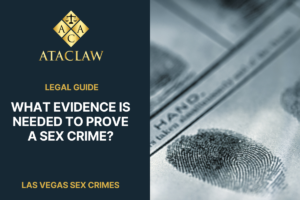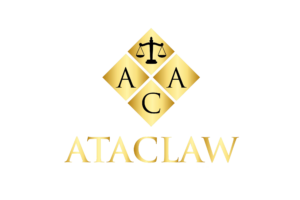
When it comes to proving a sex crime, evidence plays a critical role in the pursuit of justice. However, the types and amount of evidence required can vary depending on the specific circumstances of each case. In this article, we will explore what evidence is typically needed to prove a sex crime.
Understanding sex crimes
Sex crimes encompass a wide range of offenses, including sexual assault, rape, child sexual abuse, and harassment. These crimes can have severe physical, emotional, and psychological impacts on the victims. In order to hold the perpetrators accountable, it is crucial to gather compelling evidence that can withstand scrutiny in a court of law.
The importance of evidence in sex crime cases
Evidence is the cornerstone of any criminal investigation, including sex crime cases. It serves as the foundation for establishing the guilt or innocence of the accused. In sex crime cases, where the victim’s word is often pitted against the accused, strong and credible evidence becomes even more crucial. It is through evidence that the legal system can evaluate the veracity of the victim’s claims and ensure a fair and just outcome.
Types of evidence that can be used in sex crime cases
Physical evidence: DNA, fingerprints, and forensic analysis
In cases of sexual assault or rape, physical evidence can play a pivotal role in establishing a connection between the victim and the perpetrator. DNA samples collected from the crime scene, including bodily fluids, can provide crucial evidence linking the accused to the offense. Forensic analysis of such evidence can scientifically establish the presence of the perpetrator, strengthening the victim’s case.
Additionally, injuries sustained by the victim during the assault can also serve as physical evidence. Documentation of these injuries through medical examinations and photographs can further bolster the victim’s credibility and support their account of the crime.
Digital evidence: Emails, text messages, and social media posts
In today’s digital age, electronic evidence has become increasingly important in sex crime cases. Digital evidence can include emails, text messages, social media posts, or any other form of electronic communication that may provide relevant information about the crime.
For example, in cases of harassment, explicit or threatening messages exchanged between the victim and the accused can serve as compelling evidence. Social media posts or public conversations that establish a pattern of behavior or corroborate the victim’s account can also be invaluable in proving a sex crime.
Eyewitness testimony and victim statements
Eyewitness testimony can provide crucial insights into the circumstances surrounding a sex crime. Witnesses who were present at the scene of the offense or who have relevant information about the incident can provide valuable testimony. Their accounts can help establish the credibility of the victim’s claims and provide additional evidence to support the case.
Victim statements are also a vital form of evidence in sex crime cases. The victim’s firsthand account of the offense, including details about the incident and the identity of the perpetrator, can hold significant weight in court. However, it is important to note that victim statements alone may not always be sufficient to secure a conviction. Corroborating evidence is often required to strengthen the case.
Expert testimony and forensic examinations
Expert witnesses can play a crucial role in sex crime cases. Forensic experts, psychologists, or medical professionals can provide specialized knowledge and analysis that can help explain the evidence and offer insights into the behavior of the perpetrator or the impact of the crime on the victim.
Forensic examinations, such as DNA analysis or medical evaluations, conducted by trained professionals can provide objective evidence that supports the victim’s claims. These examinations are often conducted in a controlled and scientific manner to ensure accuracy and reliability.
The role of surveillance footage and other visual evidence
Surveillance footage and other visual evidence can be instrumental in sex crime cases, especially when they capture the offense or depict the presence of the accused at the scene. Video recordings, photographs, or even sketches can provide tangible evidence that supports the victim’s account and corroborates their testimony.
However, it’s important to note that not all cases have readily available visual evidence. The absence of such evidence does not necessarily undermine the credibility of the victim’s claims. The legal system recognizes that sex crimes often occur in private or in situations where surveillance is not present.
Challenges and limitations of collecting evidence in sex crime cases
Collecting evidence in sex crime cases can present numerous challenges and limitations. Victims may delay reporting the offense due to fear, shame, or trauma, which can result in the loss or deterioration of physical evidence. Memories can fade over time, making it difficult to recall specific details or accurately identify the perpetrator.
Moreover, sex crimes often occur in private settings, without witnesses or surveillance footage. This can make it harder to gather objective evidence that directly links the accused to the offense. In such cases, establishing guilt may rely heavily on the victim’s testimony and the credibility of their account.
The importance of thorough investigation and evidence presentation in sex crime cases
Proving a sex crime requires a thorough investigation and the presentation of compelling evidence. Each case is unique, and the evidence required can vary depending on the circumstances. Physical evidence, digital evidence, eyewitness testimony, expert opinions, and visual evidence all play a crucial role in establishing guilt and securing justice for the victims.
It is essential for victims of sex crimes to seek legal advice from professionals experienced in handling such cases. These professionals can guide them through the legal process, help gather the necessary evidence, and ensure their rights are protected. By understanding the types of evidence required and the challenges involved, victims can navigate the legal system more effectively and increase their chances of obtaining a fair and just outcome. The pursuit of justice for sex crimes relies on a comprehensive and sensitive approach that respects the rights and experiences of the victims.
Do you need a Sex Crime Attorney in Las Vegas?
If You're Facing Sex Offense Crime Charges, We're Here To Help.
 Call us for help
Call us for help
Have you been falsely accused of a sex crime?
"How do you beat a sex offense charge in Nevada?"
"Is it possible to be removed from the sex offenders registry?"
We have answers for you
To learn more about sex crimes laws in Las Vegas and how to get your self defense charge dismissed or to discuss a particular criminal case that you or someone you love is facing, Call ATAC Law firm for help to get your charges reduced or dismissed.
Contact us for a FREE phone meeting to discuss your case with what people are calling the best criminal defense attorney in Las Vegas.
At ATAC, our Las Vegas team of lawyers is here to work with you to help you through your case.
For Nevada Revised Statutes (NRS) related to legal matters, including sex crimes, fraud charges, DUI charges, domestic violence, and non-homicide self-defense, you can visit the official website of the Nevada Legislature or consult legal databases specific to the state. These resources will provide you with the most up-to-date and accurate information on the relevant statutes.
- Nevada Legislature Website: You can visit the official website of the Nevada Legislature at leg.state.nv.us. The website usually has an easy-to-navigate interface where you can search for specific NRS codes related to different legal categories.
- Legal Databases: Online legal databases such as Nevada Legal Forms or Justia may also provide access to the latest Nevada Revised Statutes.
- Legal Professionals: If you have specific legal questions or need assistance with legal codes, consulting with a legal professional, such as an attorney practicing in Nevada, is always a good idea.

